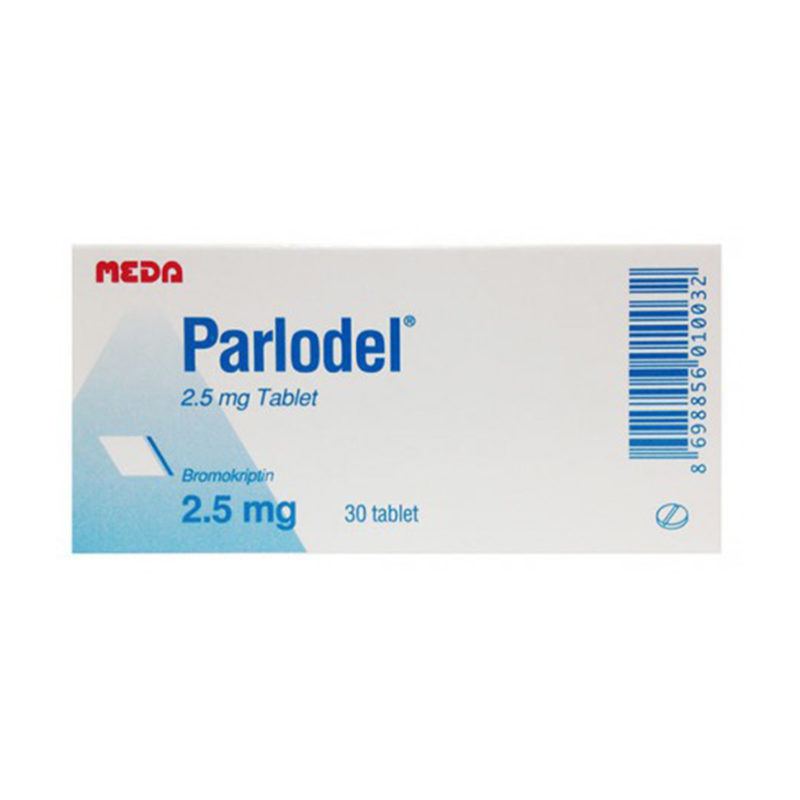
Metformin (MetPro™)
Metformin – the Diabetes Treatment that Reduces Cholesterol & Blood Sugar Levels
- Well known as a diabetes treatment, Metformin reduces blood sugar levels, thus improving the body’s use of insulin.
- Metformin works by reducing the amount of glucose produced by our livers and the amount absorbed through the stomach.
- Metformin also prevents low-density lipoproteins or ‘bad cholesterol’ from attaching to arteries and blood platelets.
Don’t forget to order your Vitamin B12 with Metformin, as Metformin is known to deplete your vitamin B12 level.
This product has the
following ingredients
This product is associated with the following health conditions
AGE (Advanced Glycation End) Products in the Blood AMPK Defects Angina Antiaging Supplements Antiglycation (Cross Linking) Blood Disorders Blood pressure Calorie Restriction Mimetics (CRM) Cancer Cardiovascular Conditions Diabetes Elevated Homocysteine Levels Elevated PSA (Prostate Specific Antigen) Levels Excess Lipids Excessive Triglycerides in the Blood Fertility Problems Glycation Prevention Heart, arterial & blood health conditions High Blood lipids High Cholesterol Hypertension Insulin & Glucose Control Polycystic ovarian syndrome (PCOS) Poor Glucose Control Syndrome X (metabolic syndrome) Weight LossProduct Description
Metformin works to reduce blood sugar levels and improve the body’s use of Insulin; it has long been used as a treatment for Type 2 Diabetes. It works by reducing both the amount of glucose absorbed through the stomach and the amount produced by the liver, lowering the body’s overall glucose levels and ensuring any glucose taken in is absorbed more effectively.
Metformin also works to actively prevent “bad cholesterol” – low density lipoproteins – from attaching to blood platelets and arteries.
Metformin ingredients are particularly effective as a type 2 diabetes treatment – the common adult-onset form of diabetes. With its ability to reduce blood sugar levels, Metformin curbs the cravings for sugar, and in doing so, becomes a useful dieting aid. A valuable weapon in combating the effects of aging, metformin addresses the natural loss of glucose tolerance with age, and the linked cardiovascular diseases and the Metformin and cholesterol regulating properties make it a comprehensive wellbeing and diabetes treatment.
How does Insulin help in reducing glucose in the body?
Insulin is vital to reduce the amount of glucose in the blood. It’s the hormone produced by the pancreas that reduces the glucose levels produced by our liver. Insulin is also instrumental in removing glucose from the blood by muscle and fat tissues which burn glucose for energy. When this level of insulin depletes and the amount produced slows down, diabetes occurs. This is when it’s necessary to seek an effective diabetes treatment.
It’s very common for people past middle age to experience a loss of glucose tolerance and the effects are significant. The way that Metformin works by not increasing insulin levels in the blood cause excessively low blood glucose levels as a result – this is a direct contrast to how drugs like Glyburide (Micronase, Diabeta) or Glipizide (Glucotrol) work. These are part of the Sulfonylurea class and work to lower glucose levels, specifically designed to manage Type 2 Diabetes.
What’s special about the Metformin action is that it doesn’t reduce the availability of glucose in the body and doesn’t affect the levels of insulin. It acts by making the receptors more sensitive to insulin which means available glucose is utilized more effectively. Metformin’s action also increases the sensitivity of the hypothalamus and peripheral tissues (like muscles) to the effects of insulin. In effect, it rejuvenates this response, restoring the effects of glucose and insulin to much younger physiological levels. This all means that not only do the physical properties of metformin help with diabetes, but the ability of metformin to control sugar cravings is activated.
Metformin also works to increase the sensitivity of the peripheral tissues and the hypothalamus to insulin and its effect. By rejuvenating this sensitivity and response, the effects of both insulin and glucose are restored to younger physiological levels.
Metformin Ingredients and Effects in Diabetes Treatment
Metformin was the first drug to be approved by the US FDA in 1994 as a blood sugar reduction treatment. Further tests reveal metformin as a versatile drug and by so effectively treating diabetes, associated conditions are likely to be reduced. Indeed, Scientific tests show that using metformin reduces the complications linked to diabetes such as heart disease, blindness and kidney disease.
Why Metformin Works as a Life Extension Drug
Metformin works to protect your body from “bad cholesterol” by preventing these low density lipoproteins attaching themselves to the arteries and blood platelets. The lower cholesterol level can be achieved and a reduction in the risk of blood clotting. Tests in 2002 suggest that Metformin also acts as an antioxidant.
By stabilizing sugar levels, undertaking a Metformin diet is potent in curbing cravings for sugary food – especially useful in weight control and encouraging a healthy attitude to eating.
Diabetes is believed by many gerontologists (who study aging) to be an example of accelerated or premature aging. Addressing age-related diabetes and the prevention of sugar cravings, together with improved body composition, insulin use and the stabilization of sugar levels, can only help to promote increased longevity.
What are the ingredients in Metformin?
Primarily, it contains metformin hydrochloride – the chemical that actively decreases the liver’s production of glucose. It also includes magnesium stearate, emulsifiers and delayed release agents – these all help bind the properties of the treatment, make it easy to swallow and release the ingredients at the right time in the right amounts.
Metformin doses and side effects
As a guide, for people over 40 years of age, a regular dosage of Metformin would be 600-800mg, 3x a day. The best diet for metformin – as with every supplement and for a sound overall health plan – is varied and balanced: plenty of fruit and vegetables and low to moderate amounts of foods high in fat and sugar. The effect of metformin on low sugar diets is that it helps control cravings for foods high in carbohydrate and sugar, so it’s actively recommended in this case. Metformin also has the ability to help avoid a blood clot, possessing properties that help avoid a hardening of the arteries that can in turn lead to a heart attack.
Metformin (also sometimes referred to in the generic glucophage) produces minimal side effects (which is amply supported in testimonial) and is a proven type 2 diabetes treatment, with the added ability to lower cholesterol. There are very few contraindications but very rarely, lactic acidosis can occur in diabetics, and taking Metformin in this case has been known to cause panic attacks. In those suffering with a hypothyroid condition, metformin can help alleviate symptoms. In whichever case it’s always advisable to ask your doctor before embarking on any course of medication.
Metformin SR / XR tablets are now also available. These slow-release tablets act over a longer period of time, helping to keep insulin levels stable for longer periods and therefore can also, in some, cases allow for less frequent dosing.
Metformin and Vitamin B12
It’s known that many drugs can have effects on vitamins and other nutritional pathways within the body, although nutritional support programs hardly practised by physicians! The ‘Drug nutrition depletion handbook’ is a great source of information to inform patients on what nutrition should be being taken with any particular medicine regime. In relation to metformin, it is known to disrupt the vitamin B12 pathway in the body, therefore it is a sensible precaution to ensure that you are taking a good B12 supplement when using metformin.
We recommend Vitamin B12 in combination with Metformin use.
Metformin’s power to help lower glucose levels produced by the liver and absorbed from food is key to improving the level of insulin in the body. With balanced insulin levels, the ability to lower cholesterol and the reduction of cravings for fatty foods all mean that metformin becomes a very potent long-term health supplement indeed.
Frequently Asked Questions About Metformin
Disclaimer: Please note that only your own physician can determine your precise needs, but in order to give you some information these answers are based upon the ‘average person’ and clinical / published results.
Since weight training does rely on blood glucose for sustained workouts, would Metformin negatively impact the duration of the workout by reducing the available glucose used for energy
Metformin does not reduce the availability of glucose, nor does it directly affect its levels, nor the levels of insulin. It acts by making the receptors more sensitive to insulin which means that glucose levels are better utilised. You may like to read Dr. Dean’s article for further information.
I am considering adding Metformin to my anti-aging program, and I would like some more information on it before I start putting it into my body. I’m excited about the possibility that it activates the same gene expression as CR, but most important to me is long term safety.
I understand Metformin has a 40 year track record – so there must be significant data regarding the safety of long term usage. I understand that Metformin has to be detoxified by the liver. What tests should I have done and which parameters should I pay attention to for my liver function before and during using Metformin?
I’m not sure what the implications are for using Metformin with regard to minimal fasting blood sugar and fasting insulin levels. At my last blood test my fasting serum glucose was 17mg/dl (range 65 – 99) and my fasting insulin was 2.4 uU/ml (range 6.0 – 27.0)
Please advise as I’m looking for information but can’t find any good sources.
Dr. Dean offered the following advice: “I think this individual numbers look very good. As long as kidney and liver functions (SGOT, SGPT, BUN, creatinine) are normal, he can take Metformin without concern. The parameter I watch in those who suffer from impaired liver or kidney function (as well as in diabetics) is lactic acid. This fellow will probably benefit less than someone who had a medical problem. It’s like putting an athlete on a training program. The less fit a person is, the more he will benefit from the training program. Adding metformin to someone whose parameters are all in the very fit range will not benefit him as much as someone who has deviated significantly from the norm.”
Metformin Dosage:
For those over 40 years of age, one 500mg to 850mg of Metformin once, twice or three times a day.
Consult your physician if you are a diabetic, have any liver or kidney problems or have ever suffered from lactic acidosis. Stop use if you feel unwell.
Metformin Side Effects:
Side effects are rare but they do happen – in smaller doses, these may include loss of appetite, stomach pain, nausea (rarely vomiting) and diarrhoea.
In higher doses (3 grams a day), sometimes taken by those with Type 1 and Type 2 Diabetes, side effects may include hypoglycaemia or lactic acidosis.
Recommendations on How to take Metformin
Metformin can inhibit the uptake of vitamin B12, so a B12 supplement is recommend whilst using Metformin.
Metformin may be synergistic with Acarbose and Aminoguanidine.
Please note that the use of Metformin is contraindicated when used alongside the following drugs, which could cause renal malfunctioning:
- Thiazide
- Cimetidine
- Diuretics
- Other anti-hypertensive products
People who suffer with the following health conditions should also not take Metformin:
- Ketonuria
- Serious Hepatic And Renal Disorder
- Serious Cardiovascular Problem
- Serious Respiratory Problems
- Suprarenal Insufficiency
- Chronic Alcoholism
- Serious Dystrophic Illness
- Acute Hemorrhaging
- Gangrene
- Diabetes With Previous Episodes Of Lactic Acidosis Or Hypersensitivity To Metformin
Reviews on Metformin from our Customers
Metformin is the most under-appreciated anti-aging drug today
Ward Dean MD, Florida.
What a super diet aid Metformin has proven to be.
E.J., Nevada.
Metformin (MetPro™) Testimonial
What a super diet aid Metformin has proven to be.
E.J., Nevada.




